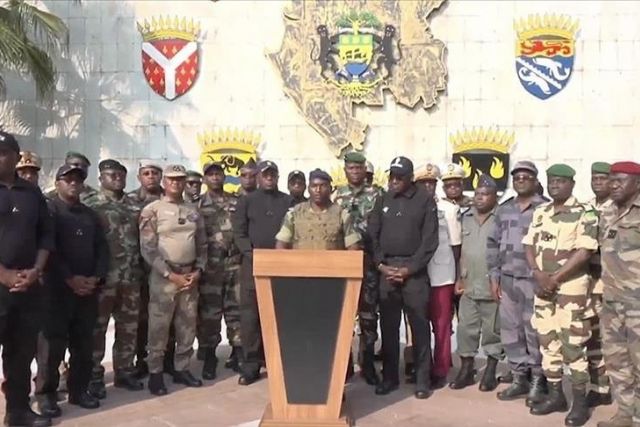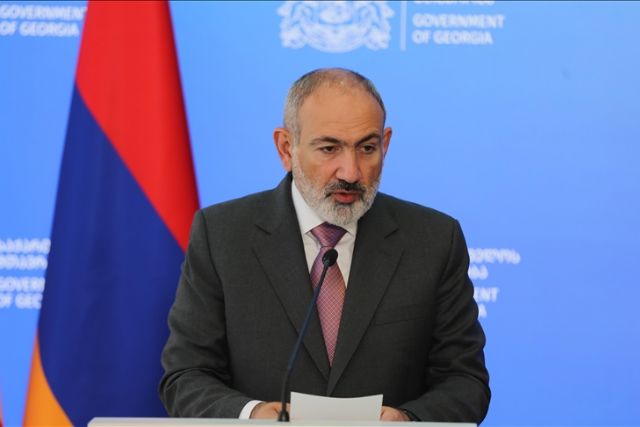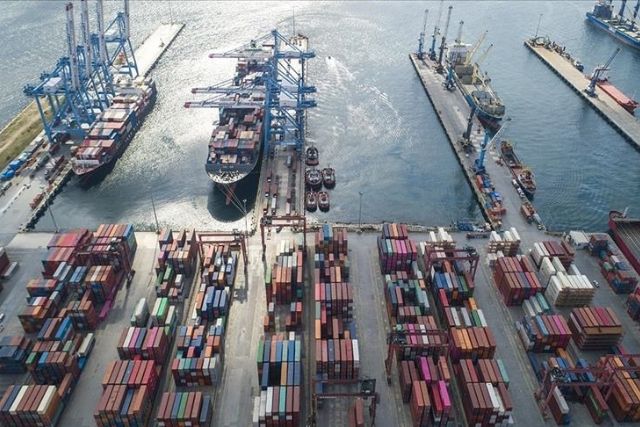Türkiye, Russia, China could fill void left by France in Africa: Professor
Russia is willing to fill power vacuum but lacks significant influence in the region, says faculty member at Ankara Social Sciences University

ISTANBUL
Following recent coups in former French colonies in Africa, countries like Russia, China, India and Türkiye could emerge as alternative options for Africans, demonstrating that France isn't their sole choice, said a faculty member in African Studies at Ankara Social Sciences University.
Elem Eyrice Tepeciklioglu told Anadolu that the seizure of power by a group of soldiers in the Central African country of Gabon on Aug. 30 has added to the series of coups in former French colonial nations.
"There is a growing anti-French sentiment in Gabon and the region, with criticism directed at the patronizing style of French leaders. Nevertheless, France continues to be a significant trading partner for countries like Gabon, placing it at the center of regional attention," she added.
Tepeciklioglu noted that while Russia is interested in Africa for its resources and arms potential, the Ukraine conflict is a higher priority.
"The emerging anti-French sentiment in Africa is creating a power gap that Russia is willing to fill, although it's not a major player in the region. While Russia had a more active role in Africa during the Cold War, its current focus on the Ukraine crisis limits its resources for the continent," she said.
Diversification of foreign policy actors in region
Tepeciklioglu said that Africa's consecutive coups and growing anti-French sentiment indicate a desire for independence and freedom from colonial ties.
She also warned against excessive reliance on foreign actors like Russia, which has supplied Soviet-era weapons to many African countries, leading to a dependency on it for maintenance, spare parts and military training.
Nevertheless, "Africans will see Russia, China, India or Türkiye as alternative foreign powers. This diversification of trade partners is economically crucial, since France depends on Africa's resources, and if these nations seek new alternatives, France will have to adjust," she added.
Referring to allegations that France is planning to regain influence in Africa by changing governments, she said: "There were known disagreements between the Bongo family in power and France before the Aug. 30 coup in Gabon, but there is no evidence of external support for the coup. It seems the military took control due to favorable conditions."
Military's seizure of power welcomed with ‘immense joy'
Highlighting that the Bongo family had been in power in Gabon since 1967, with Ali Bongo taking over in 2009, she said: "The military argued that the government, which had been in power for many years, no longer represented the people, was tainted by corruption, and had led to income inequality. These conditions made it easier for the military to seize control."
"The public's lack of trust in the current government led to protests against Ali Bongo's third presidential election win, and the military's takeover was met with immense joy in the country,” she added.
After a contested election on Aug. 26, the military took control in Gabon on Aug. 30, following similar events in Sudan, Mali, Burkina Faso and Niger.
Ali Bongo secured his third presidential win.
But the military administration, known as "the Committee for the Transition and Restoration of Institutions" (CTRI), invalidated the election results and closed the country's borders.
Gen. Brice Oligui Nguema, the head of the elite Republican Guard, was appointed as chairman of the CTRI and president of the transitional government.
The Bongo family had governed Gabon for 56 years.
*Writing by Necva Tastan





